Health is wealth, eat well to live well.
Join my community and receive my free ebook! Subscribe now >>
Understanding Heart Health | The Heart Of The Matter
High Blood Pressure Wellness Lifestyle Podcast, Episode #77
Welcome to our comprehensive guide on understanding heart health. In a world where heart disease remains a leading health concern, empowering yourself with knowledge is key to prevention and longevity. Here, we unravel the complexities of cardiovascular well-being, offering expert insights, cutting-edge research, and practical tips to help you nurture a healthy heart.
Whether you're looking to make lifestyle changes, understand risk factors, or stay informed about the latest advancements in heart care, this page is your gateway to a heart-smart life. Dive into the wealth of information and take the first step towards a healthier, more informed you.
Mentioned In This Episode - Enhance Your Heart Health Knowledge: Resources and Recommendations!
As you deepen your understanding of heart health, here are some resources that can provide additional insights and guidance:
- Recorded Workshop: Designing Your Wellness Vision:
Dive into my recorded workshop, Designing Your Wellness Vision: Creating a Vision of Purposeful Habits for a Healthier, Happier Life. This session guides you in crafting a vibrant, wellness-centered vision for your life. With actionable steps, you'll embark on a transformative experience that empowers you to move forward toward a healthier lifestyle.
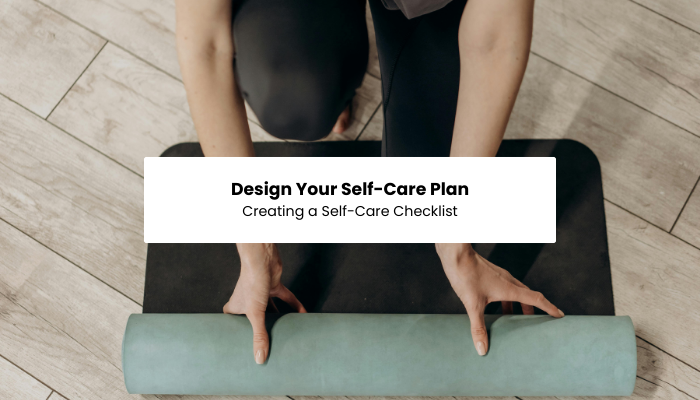
- Article Recommendation: To explore more about heart health challenges, read The Cardiovascular Disease Epidemic in African American Women: Recognizing and Tackling a Persistent Problem. This comprehensive article, compiled by the National Library of Medicine, delves into the unique challenges faced by African American women regarding cardiovascular disease.
These resources offer practical advice and critical insights into various aspects of heart health. Do stay tuned for future episodes where we continue to explore these themes.
Subscribe To These Episodes
Apple Listen on Apple Podcasts Spotify Listen on Spotify YouTube Listen to High Blood Pressure Wellness Lifestyle Podcast RecordingsUnderstanding Heart Health: The Heart Of The Matter Podcast Transcript, Episode #77
February is not just about hearts in the romantic sense, but also as American Heart Month, a great reminder of the importance of taking care of this vital organ. This month, let’s focus particularly on the heart health of women of color, often underrepresented in these discussions.
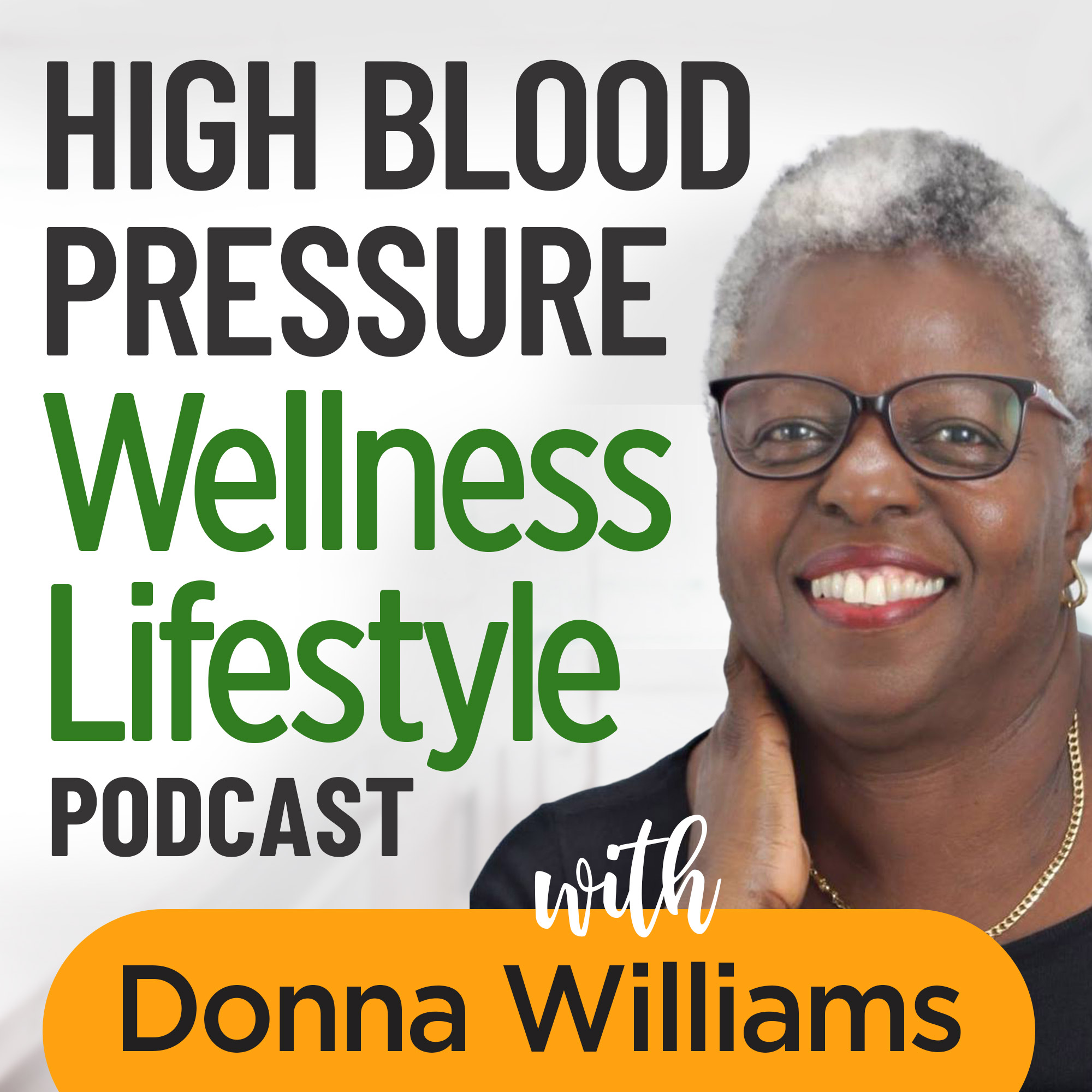
Welcome back to the High Blood Pressure Wellness Lifestyle Podcast, where we explore powerful insights and steps toward a healthier, more vibrant life. I’m Donna Williams, Certified Holistic Health Coach and your host. Today and for the rest of the month of February, we’re diving deep into a critical topic impacting millions worldwide, heart health.
In this episode, titled 'The Heart of the Matter: Understanding Heart Health,' we’ll unravel the intricacies of heart disease, the silent epidemic affecting so many, especially women of color. We’ll uncover startling statistics that highlight why this issue demands our attention and discuss the unique challenges faced by our communities in maintaining heart wellness.
I’ll also share inspiring personal stories, engage with experts who provide life-changing advice and offer practical steps we can take today to nurture our hearts for tomorrow. Whether you’re looking to prevent heart disease or empower someone you love, this episode is packed with invaluable information.
So, sit back, grab a healthy snack, and join me as we embark on this journey to understanding and improving our heart health. Let’s get started!"
As someone who has seen firsthand the challenges faced by communities of color, I'm passionate about opening up a conversation around heart health. It’s a crucial issue that doesn't just touch lives individually but affects families and communities on a large scale.
My Family's Personal Journey Into Heart Health Issues!
My journey into heart health awareness began with the deeply personal experiences within my own family. It is this very journey that fuels my mission to spread awareness and guide others toward a healthier heart.
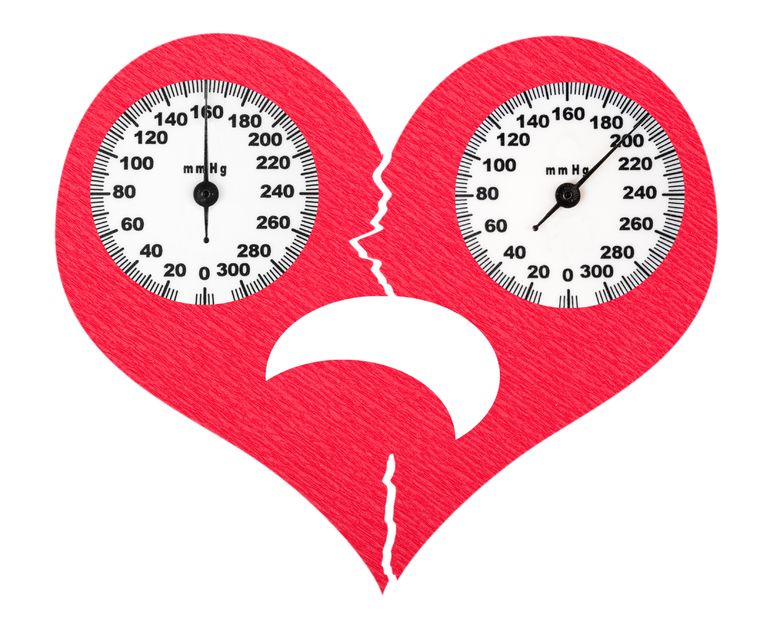
Two of my nephews, both vibrant and active men in their early 40s, had been managing high blood pressure vigilantly. Despite their efforts, the unpredictability of heart issues hit close to home. One of them passed away suddenly while bending down to put on his shoes, simply getting ready to pick up his son from the train station.
The other was on his way to the front door of his home to pick up his wife, a dedicated nurse from her night shift, when he too succumbed to the silent grasp of heart disease.
The impact on my family did not stop there. I lost two of my beloved sisters to strokes.
Watching one of them who once radiated energy and vitality, reduced to three years of silent, smiling perseverance was heart-wrenching. Her gaze still speaks volumes of the person she once was.
And then there was another of my older sister. One evening, feeling unusually cold, she retired to bed and never woke up. The haunting image of her outstretched hand, as if reaching for something beyond, remains etched in my memory.
These stories are more than just recollections; they are powerful reminders of the critical importance of heart health. My family's history with high blood pressure and its impactful complications serves as a constant reminder for me to advocate not just for my health but for the health of others who may benefit from understanding and awareness.
The Heart of the Matter - Statistics And Facts:
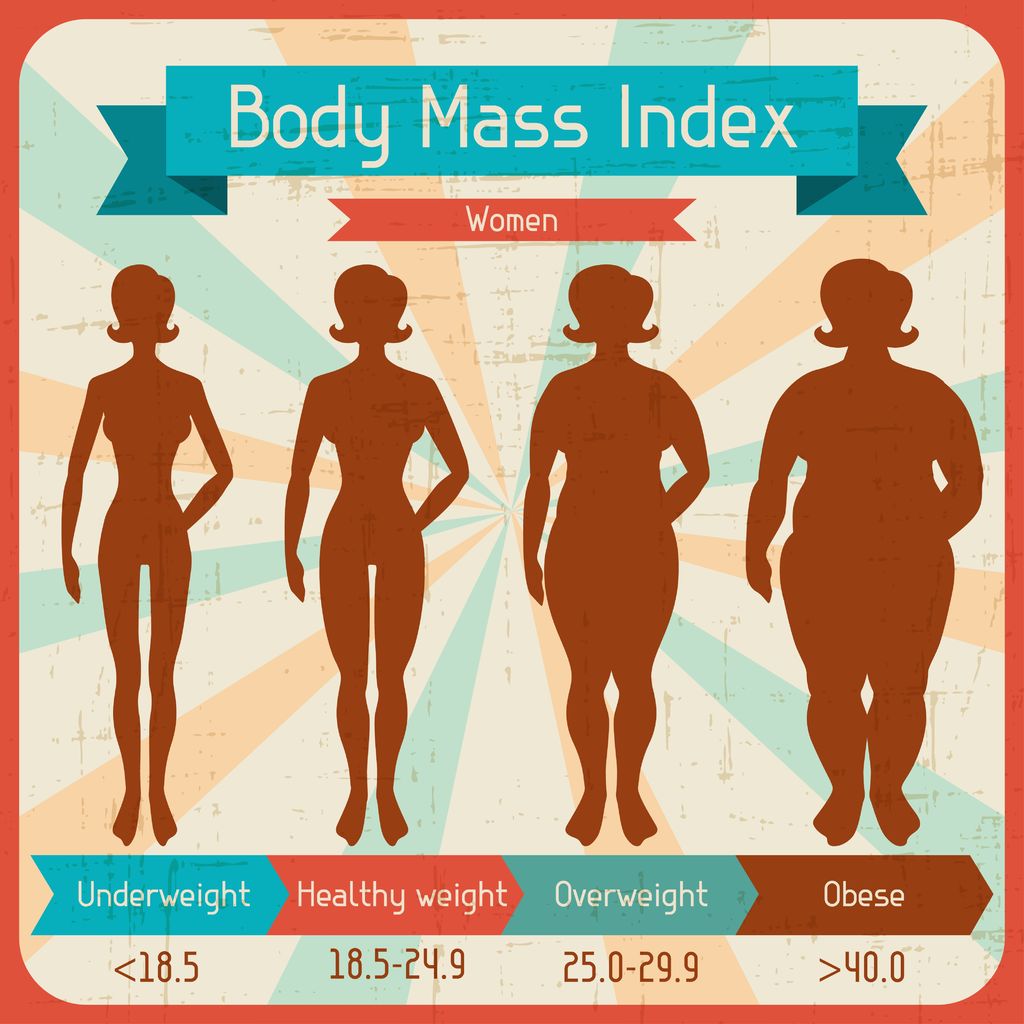
Let's start with the numbers. Did you know that heart disease is the leading cause of death for women in the United States? Yet it's often overshadowed by other health discussions. It's even more concerning when we look at women of color. For Black women, the disparity is alarming, with rates higher than their white counterparts.
Heart disease is not only the leading cause of death for women in the United States, but it also claims the lives of approximately one in every five women. This is a staggering figure, underscoring the urgent need for awareness and action.
Statistics from the CDC show that nearly 50% of African American women aged 20 and older have heart disease, yet only 1 in 5 believes she is personally at risk.
Let's Look Deeper Into Specific Demographics:
When we focus on women of color, particularly Black women, the statistics are even more alarming.
According to the American Heart Association, nearly 50% of African American women 20 years and older have some form of cardiovascular disease, yet most are unaware of their increased risk.
Look At These Common Risk Factors To Understanding Heart Health
We are talking risk factors such as high blood pressure, diabetes, obesity, and smoking are prevalent within these communities, my community, often due to a combination of genetic, environmental, and socioeconomic factors.
High blood pressure, which is particularly significant, occurs earlier and is often more severe in African Americans compared to their white counterparts.
Economic And Health System Impact
Heart disease also imposes a significant economic burden, with estimates suggesting it costs the U.S. around $219 billion annually. These costs encompass healthcare services, medications, and lost productivity due to premature death.
Let's Not Forget These Misconceptions:
Many assume heart disease is primarily a 'man's issue,' yet heart disease kills more women annually than men.
This misconception leads to underdiagnosis and undertreatment in women, especially those of color.
Why This Matters As We Understand Heart Health
These numbers aren’t just statistics; they are a reflection of families, friends and communities impacted by heart disease daily. Each life lost or affected represents a mother, sister, aunt, or friend whose absence leaves a void that resonates throughout their community.

These are real-life implications affecting real people.
Presently, heart disease is shortening the lives of millions of people and diminishing the quality of life for another million more.
Heart disease impacts our schools, workplaces, and our ability to thrive economically and socially. Access to healthcare, cultural misconceptions about health, and systemic barriers compound these issues for women of color.
By understanding heart health and addressing these barriers, we can work towards change.
Societal And Cultural Factors To Consider:
Access to healthcare plays a pivotal role in survival and management. Because without regular screenings and preventive care, conditions like hypertension and diabetes may go unnoticed and untreated.
Moreover, cultural factors often shape health perceptions and behaviors, sometimes leading to delayed care or misconceptions about the seriousness of symptoms.
Women take care of everyone else, always waiting to the last minute to take care of themselves. So the impact on their health is more severe.
How Do We Go About Challenging Systemic Barriers?
Systemic barriers such as socioeconomic disparities, cultural biases in medical treatment, and a lack of representation in medical research contribute to these health inequities.
Addressing these barriers requires concerted efforts at both community and policy levels.
Highlight The Power Of Awareness And Action:
By increasing awareness and understanding of heart health issues, especially among women of color, and this month, we can work towards improved outcomes.
Knowledge empowers individuals to make lifestyle changes, advocate for themselves within healthcare systems, and ultimately reduce the prevalence and impact of heart disease.
Brief Story/Case Study
To put a face to these numbers, meet Sarah, a mother of two who thought of herself as healthy but was shocked to discover she had high blood pressure. Her story is a reminder of how silent heart disease can be, making awareness all the more critical.
I think of her as lucky, here’s why. For many people, the first and only symptom of heart disease is death.
But Sarah’s journey didn’t just stop at the diagnosis. She embraced a heart-healthy lifestyle by incorporating exercise, monitoring her diet, effective lifestyle changes, and regularly consulting her doctor. Today, she advocates for other women to prioritize their heart health.
Remember, it’s not just women who are dying men are too. Heart disease is scary!
Expert Quotes
In our exploration of The Heart Of The Matter: Understanding Heart Health let’s delve into the remarkable contributions of renowned experts in the field.
- Dean Ornish, MD, a pioneer in lifestyle medicine, is a firm believer in the potential to reverse heart disease through non-invasive means. His groundbreaking journey began in 1977 with a small yet significant study involving just 10 participants. These individuals, deemed too ill for bypass surgery or those who had refused it, embarked on a unique intervention consisting of a whole-food, plant-based diet paired with yoga. Remarkably, after just one month, eight out of the ten participants experienced a notable improvement in blood flow to their hearts. Unsatisfied with the initial findings, Dr. Ornish expanded his research in 1980 with a larger cohort of 48 participants, focusing solely on lifestyle changes. In this study, published in the Journal of the American Medical Association, participants demonstrated reversal of heart disease after only twenty-four days. Dr. Ornish further postulates that such lifestyle modifications can positively influence genetic expression, suggesting that our genes can indeed be impacted by the choices we make.
- Complementing Dr. Ornish's findings is the work of Julian Whitaker, MD, founder of The Whitaker Wellness Diet Center, who has dedicated over thirty years to helping individuals reverse heart disease and diabetes. In his book, Reversing Heart Disease, Dr. Whitaker highlights a critical concern: although heart disease mortality rates have declined over the past decades, it remains a leading cause of death and disability. He stresses the urgency of spotlighting heart disease, emphasizing that it is not solely a condition of the elderly; it continues to claim lives in their prime.
In discussing heart health, it’s crucial to acknowledge that heart disease does not discriminate by gender. However, women, particularly women of color, encounter unique challenges in diagnosis and treatment.
As we proceed through this podcast series, we must remain cognizant of these disparities and approach heart health with a comprehensive lens. These insights will serve as our compass in future episodes as we delve deeper into understanding and managing heart health.
Engaging You, My Listeners:
I’m inviting you, my listeners, to join this journey of awareness and action. Subscribe to our podcast to stay informed about the next steps in making heart health a priority. Let's make this conversation resonate beyond this digital space.
I am asking you to think about someone in your life who can benefit from a better understanding of heart health. How can you support their journey?
I’d love to hear your stories. If you have a journey you'd like to share or questions about heart health, reach out to me via my email at Donna@info-on-high-blood-pressure.com. Your story might inspire or educate someone else.
Previewing The Next HBP Wellness Lifestyle Podcast, Episode #78
In our upcoming episode, we'll explore:
- prevention strategies, personal success stories, and practical advice on creating heart-healthy meals.
- Delve deeper into societal and environmental factors affecting heart health in women of color.
- How do our living conditions and cultural norms impact our hearts?
Stay tuned as we piece together this intricate puzzle.

Our next topic will be on “Heart Disease and Its Impact on Women of Color”.
Key Points we’ll be covering are:
- Discuss why women of color, especially Black women, are disproportionately affected.
- Explore social determinants of health that contribute to these disparities.
- Feature interviews with cardiologists specializing in this demographic.
We'll be discussing and probably have guests from nutritionists to heart health advocates sharing their wisdom. Trust me, you won’t want to miss out!
Closing Remarks on The Heart of the Matter: Understanding Heart Health!
Remember, every small step towards better heart health helps. Together, we can amplify voices and stories, advocate for better healthcare, and make impactful lifestyle changes.
Before we wrap up, I want to emphasize that heart health awareness can be a game changer, not just for individuals but for entire communities. By spreading the word and taking small steps, we can bring about a positive impact.
Here's a thought:
"The food you eat is so profoundly instrumental to your health that breakfast, lunch and dinner are in fact exercises in medical decision-making.” – Thomas Campbell, MD
Thank You and Thoughtful Expression
Just think how powerful it is that each meal can be a step towards either vitality or detriment. This is a reminder to approach each mealtime with the same care we do with our most precious life decisions.
Thank you for tuning into The Heart Of The Matter: Understanding Heart Health. I’m Donna Williams, host of the High Blood Pressure Wellness Lifestyle Podcast and I'm looking forward to delving deeper into these important discussions.
Remember, together, we can make a change, one heartbeat at a time.
Return from Understanding Heart Health to HBP Wellness Lifestyle Podcast

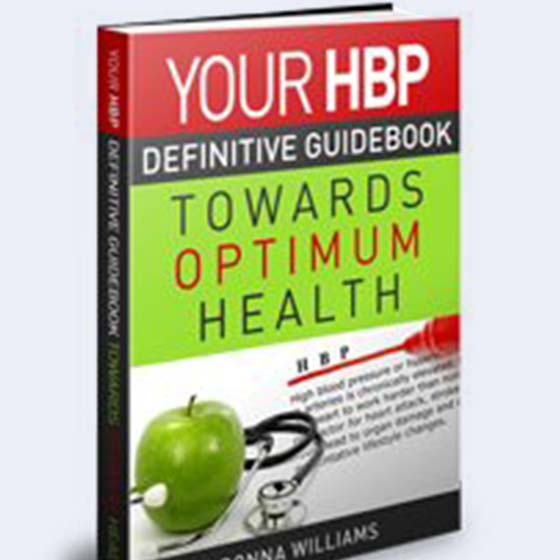


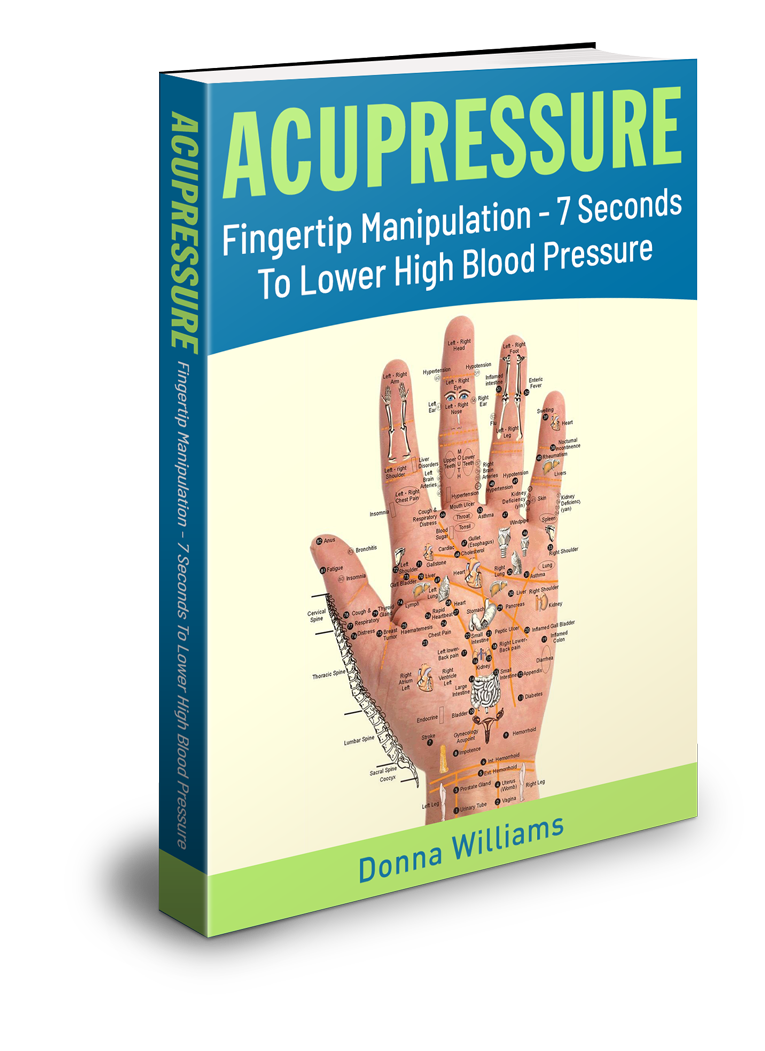
New! Comments
Have your say about what you just read! Leave me a comment in the box below.